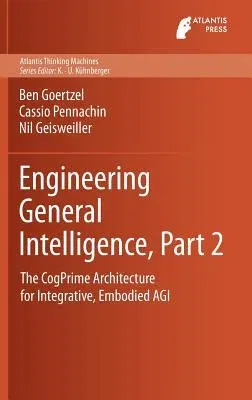Ben Goertzel
(Author)Engineering General Intelligence, Part 2: The Cogprime Architecture for Integrative, Embodied Agi (2014)Hardcover - 2014, 14 March 2014

Qty
1
Turbo
Ships in 2 - 3 days
In Stock
Free Delivery
Cash on Delivery
15 Days
Free Returns
Secure Checkout

Part of Series
Atlantis Thinking Machines
Print Length
562 pages
Language
English
Publisher
Atlantis Press
Date Published
14 Mar 2014
ISBN-10
9462390290
ISBN-13
9789462390294
Description
Product Details
Book Edition:
2014
Book Format:
Hardcover
Country of Origin:
NL
Date Published:
14 March 2014
Dimensions:
23.39 x
16.43 x
3.61 cm
Genre:
Science/Technology Aspects
ISBN-10:
9462390290
ISBN-13:
9789462390294
Language:
English
Location:
Paris
Pages:
562
Publisher:
Series:
Weight:
938.94 gm